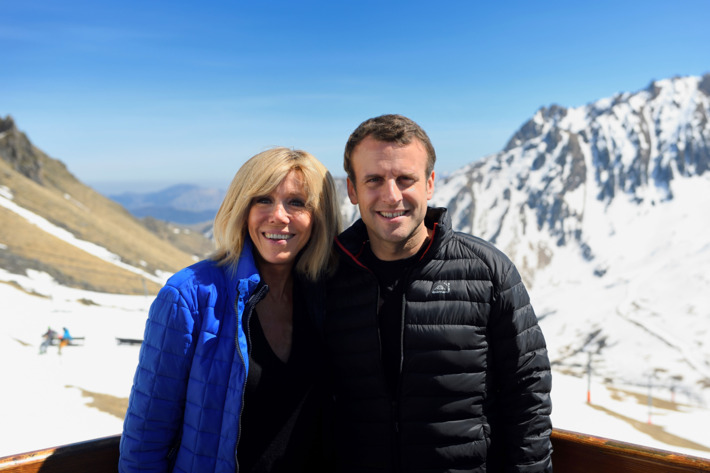French President Emmanuel Macron announced he will visit Greenland on Sunday, in a move widely seen as a geopolitical message of support for Denmark and a firm stance against outside attempts to gain influence over the Arctic territory. The visit follows renewed interest from U.S. President Donald Trump, who recently said he wants the United States to “take over” Greenland — a statement that has triggered international concern and strong reactions across Europe.
Speaking on France 2 television, Macron declared that France aims to counter any form of “predation” and to make clear that Europe is united. “France wants to show solidarity with Denmark and say, ‘we are here,’” he said. “We will not stand by in the face of attempts to destabilize or divide the European Union or its partners.”
Macron is scheduled to meet with both Danish Prime Minister Mette Frederiksen and Greenland’s Prime Minister Múte B. Egede during the trip. Discussions are expected to center on defending Greenland’s autonomy, strengthening Arctic cooperation, and addressing climate and security challenges in the region.
Why Trump wants Greenland
President Trump’s renewed interest in Greenland echoes his earlier 2019 remarks about potentially buying the territory, which were dismissed at the time as both unrealistic and diplomatically insensitive. In 2025, however, his rhetoric has become more strategic. Sources close to the administration indicate that Trump sees Greenland as a potential asset in the U.S. competition with China and Russia in the Arctic, primarily due to its untapped natural resources, including rare earth minerals, and its strategic military location.
Trump has proposed the establishment of new U.S. military installations and economic investment zones in Greenland, framing it as a “win-win” scenario. “It’s not about buying — it’s about securing our future,” Trump said recently at a rally. “Greenland is open land, and America can help develop it for the good of everyone.”
Greenland’s Uncertain Future
Despite Trump’s pitch, resistance is mounting. Greenlandic leaders, backed by the Danish government and now France, have been vocal in defending the territory’s self-rule and rejecting any notion of foreign takeover. Prime Minister Egede emphasized that Greenland is “not for sale,” reaffirming that the people of Greenland have the right to determine their own future.
In Denmark, political leaders across the spectrum have denounced the U.S. stance as neocolonial and provocative. The European Union has also expressed solidarity with Denmark, reinforcing that Greenland’s status cannot be altered without its consent.
Analysts suggest that Greenland is poised to play an increasingly important role in global geopolitics, but the island is also navigating complex issues — from balancing development and environmental protection to managing international interest in its natural wealth. The growing tension around its future underscores the need for careful diplomacy and respect for Greenland’s autonomy.
Macron’s historic visit — the first ever by a French head of state to Greenland — is being interpreted as a direct signal to Washington and other global powers: the Arctic is not a vacuum, and Europe will not cede influence over its territories without a voice.
“In a world of shifting alliances and rising threats, solidarity matters,” Macron said. “And Greenland’s future must be shaped by the people who call it home — not by those who view it as a trophy or a transaction.”
The clash between Trump and Macron, the US and Europe seems to be building up now. There has already been a lot of friction between them due to Trump’s NATO demands. Now Greenland too is turning into a huge conundrum becoming a question mark between the two. Now how far this clash will go only time will tell.








